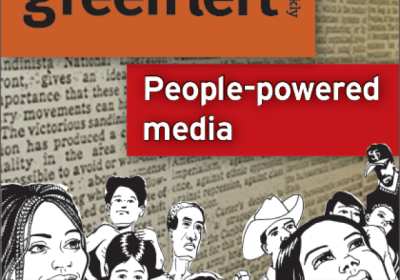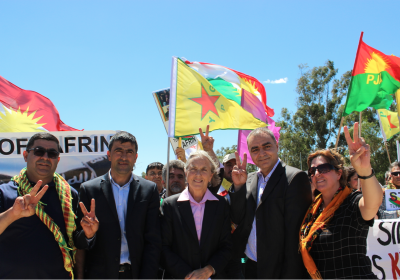We are often asked: "How do you do it?". People who have seen Green Left Weekly keep going on the proverbial smell of an oily rag often express surprise (and respect) for the fact that we have doggedly kept going with this project since 1991.
Well, it is hard work. Putting the stories together, collecting the photos and videos that are increasingly important in our online presence and distributing it week after week is no easy feat.











